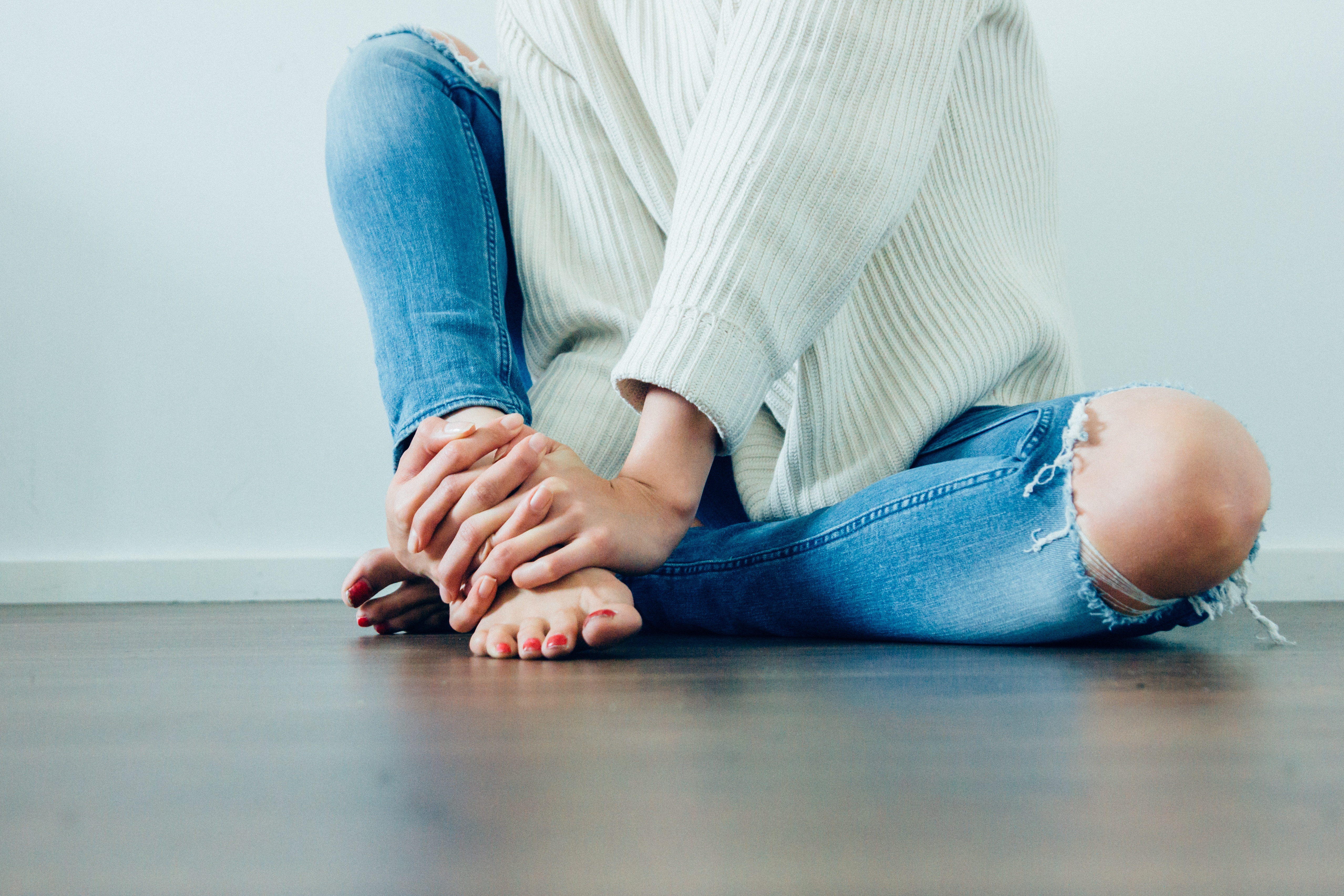This month is National Stress Awareness month. We live in a world of increasing opportunity – but also one of increasing stress. Advances in technology are brilliant at widening our experiences and horizons but our eyes are also opening to the negative impact they can have on our mental wellbeing. It’s easy to place on ourselves yet more stress-causing expectations; about the roles we feel we must fulfil and the people we must be.
But the impact stress is having is more than simply mental. Stress has time and again been linked to a plethora of physical health problems, from digestive issues, headaches and chest pain, to weight gain. And those of us in the chronic pain community well know how pain flares up in times of stress.
It’s all very well to be aware of the negative effects of stress, but what can we do about it? My personal experiences, as well as work with clients, have allowed me to come up with a few tips to help de-stress our lives. This month is an opportunity to put in place good habits that will see you reduce stress this April and beyond.
Exercise
Despite the saying ‘don’t sweat the small stuff’, I believe it’s a great place to start! Exercise is the foundation of my own personal health and wellness. Any form of exercise or movement – even a simple walk in the park – is proven to help release the stress and tension we carry in our minds which goes on to get imprinted in our bodies. Exercise leads to the release of endorphins, chemicals whose role it is to boost our mood. It’s a natural, free stress-fighter and a great way to reconnect with the bodies we too often neglect.
Sleep
Stress and sleep form a vicious cycle: stress disrupts sleep patterns but quality sleep is another all-natural way to reduce stress. Make sure that sleep isn’t the part of your day that keeps taking the hit. You need to be getting enough of it and so should you be taking steps to improve your sleep hygiene. Avoiding screens (whose blue light negatively impacts sleep) for 30 minutes before bed, creating relaxing pre-sleep rituals such as taking baths or drinking caffeine-free tea and making sure your bed is clean and comfortable, are all ways you can improve your night-time rest.
Nutrition
A body that is properly nourished is one that is equipped to take on the challenges of the day. Never underestimate the power of a balanced meal to improve your mood and provide the strength and energy to tackle tasks. It’s essential to make sure you’re getting enough vegetables in your diet. It’s easy to pick up fruit as a snack, but eating enough vegetables as well is what’s going to give your diet the variety it needs. You need to make sure you’re getting the whole range of vitamins and minerals.
Plan
Taking care to plan out your days will not only save you time but reduce your stress. Treat yourself to a diary, bullet journal or notebook and get writing down your appointments and deadlines. Seeing your tasks written out in front of you makes them more manageable but also shows you when you really can’t take on that extra favour. Practice saying ‘no’ – you’re no use to anyone if you’re stressed and burned out through taking on too much.
And you should be building in time for leisure too. Set aside time in your schedule for activities you enjoy (or even just time to do nothing), and not just the ones you feel you ‘should’ do. It doesn’t have to be spending Sunday afternoon in an art gallery but can be as simple as reading a book in the sun for ten minutes. Building in activities and moments you genuinely look forward to will not only reduce stress but also improve productivity and motivation in your work.
Disconnect
Just this week a study was released showing that taking a break from Facebook for just five days reduced the levels of stress hormone cortisol in participants.
It seems like every day reports are released about the negative side-effects of social media, backing up our own personal experiences. Whether it’s causing you to compare yourself to the image of others, or feeling you have to constantly be online so you’re not forgotten, social media can create stress and drain energy.
Maybe a five-day Facebook break isn’t practical for you and your job but even slightly scaling down your social media usage can help reduce stress and improve wellbeing. Set yourself times when you will use, for example no usage after 8pm, and respond to your online messages, and use that extra time to do something you enjoy. This can be a good way to fit into a busy schedule those leisure activities I mentioned above.
Reconnect
Nourishing your body is important, but also make sure you’re nourishing your soul! A great way to do this is to make time to meet up with loved ones. Disconnecting from social media doesn’t mean you have to disconnect yourself from others. Surrounding yourself with people who you can laugh and relax with is one of the best ways to dissipate stress. In fact, studies show that laughter reduces stress hormones as well as being a great physical release.
There’s also a more practical side to this tip. They say a problem shared is a problem halved, and seeking others for advice and support is something I couldn’t emphasise more. Whether it’s coming at a situation from a different angle or giving advice based on similar experiences, putting multiple heads together is a fantastic way to come up with workable solutions. And opening up about something in your life with a friend can not only strengthen that relationship but might even encourage them to do the same, and so help them too. It reminds both of you that you’re not alone. Stress isolates so the best way to fight it is to reconnect.


